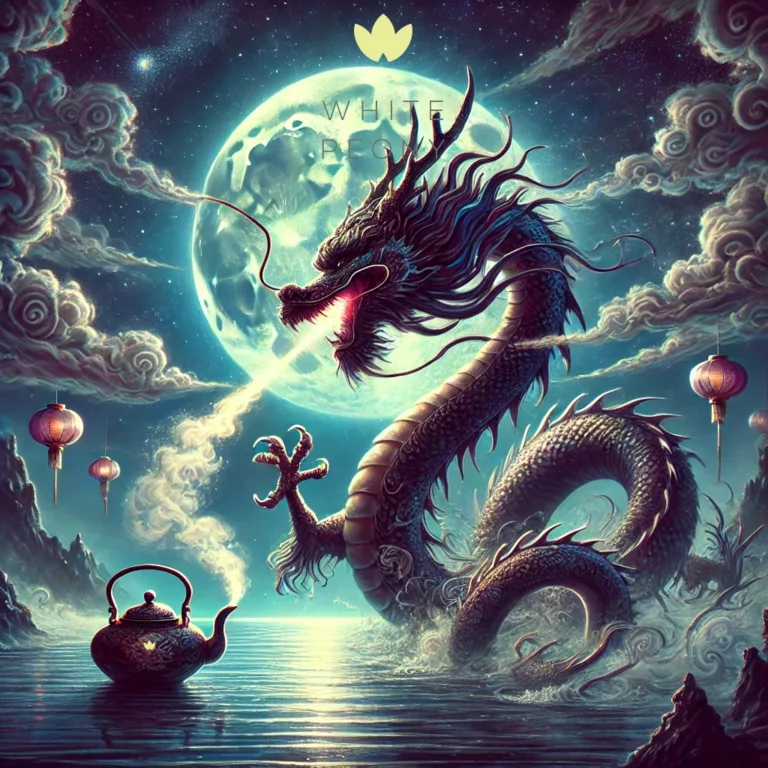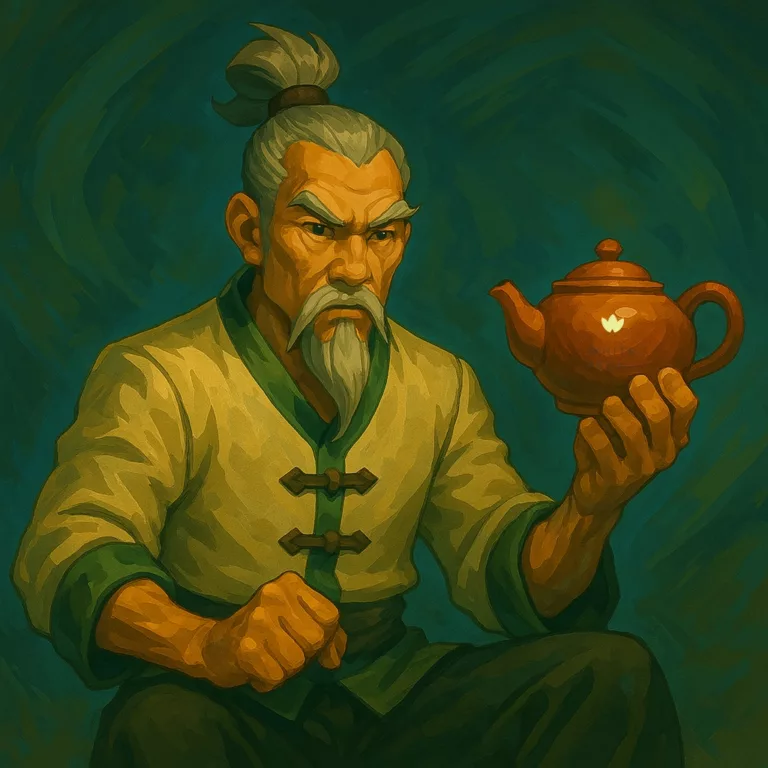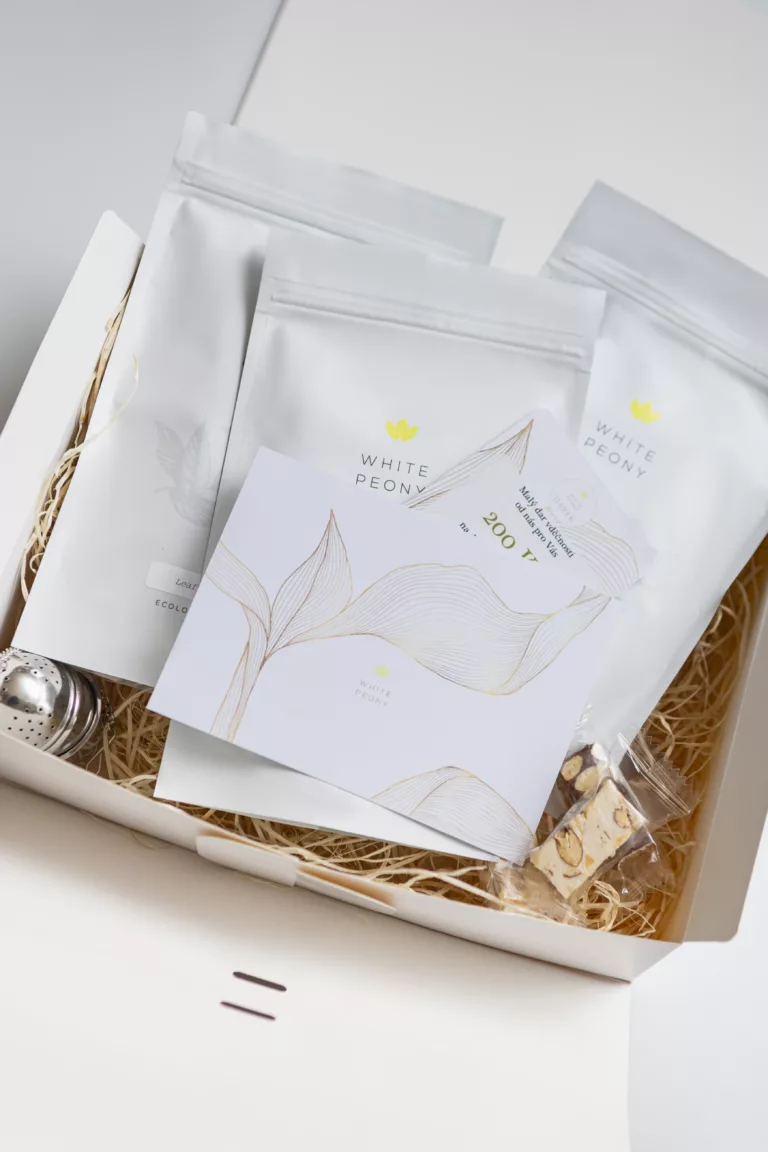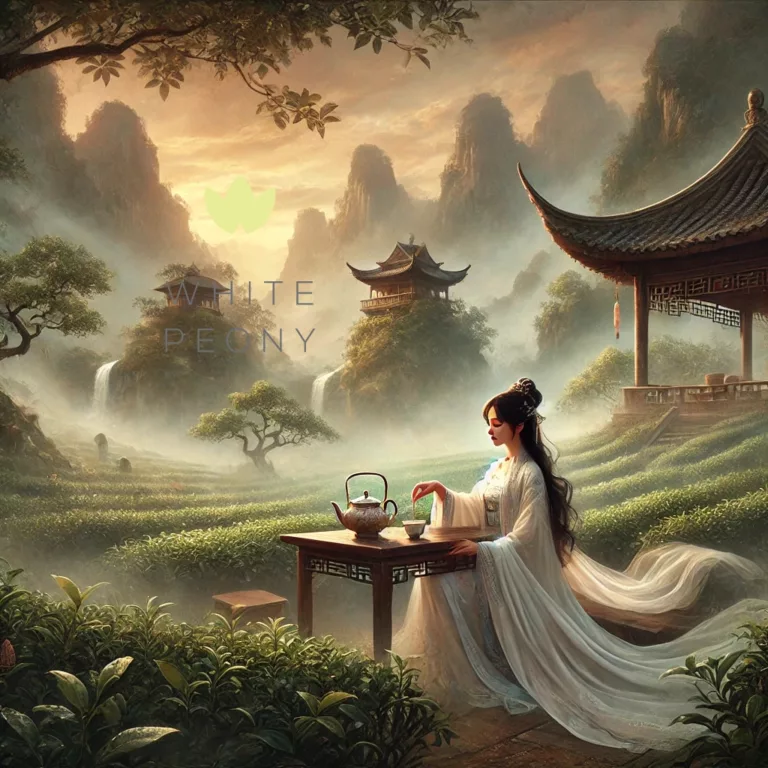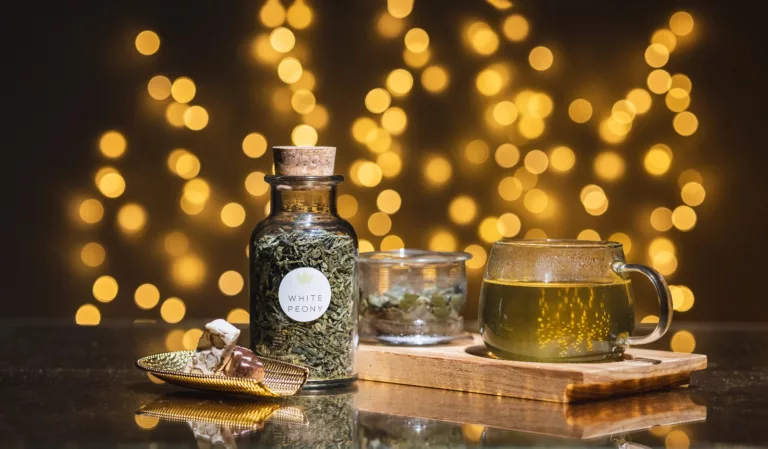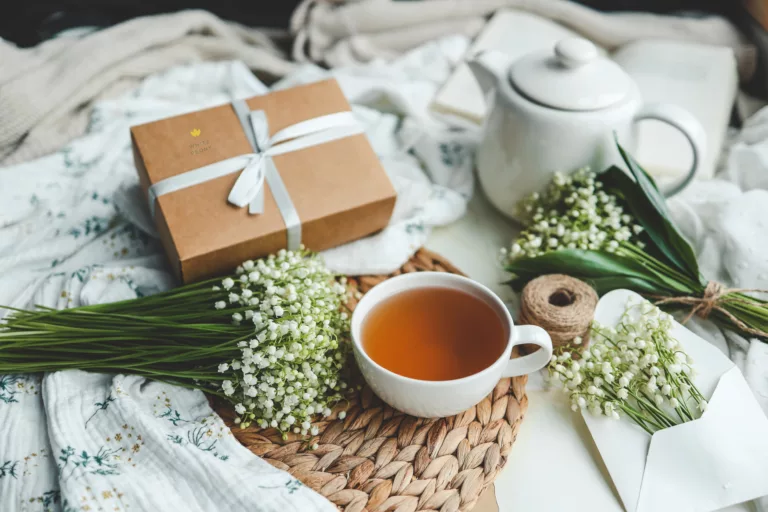Mini-Story 4: 甘甜 (gān tián) — sweetness
Grandma Lin always said she didn’t like sweets. No candy, no pastries, not even ripe lychee. Her grandson, a fan of soda and caramel, couldn’t understand.
“Grandma, what do you actually find tasty?”
She’d just nod toward the teapot.
One day, when the city was wrapped in humid summer air, she brewed some Bi Luo Chun and handed him a cup. He took a sip and blinked:
“But it’s not sugary… and still sweet?”
She smiled.
“That’s gān tián,” she said. “Not the sweetness that clings to your teeth — the kind that lingers inside. Like kind words, said at the right time. Or rain after a drought.”
“And why do you like only that kind?”
“Because it asks nothing in return. It just appears. Like a memory of simple happiness.”
Ever since then, the boy searched for that same gān tián in every tea he drank. He didn’t always find it. But when he did — he smiled. Like Grandma.
Mini-Story 5: 苦涩 (kǔ sè) — bitterness and astringency
At the foot of Mount Emei was a tea house with an old legend. If someone came in with a broken heart, they weren’t served oolong or jasmine. They were given huangpian — old, rough leaves with a bitterness like first love… that went to your best friend.
One day, a girl with eyes full of rain sat down at a table. She stared into nothing until the tea master placed a cup before her. The scent was uneasy. The taste — sharp. Like bark from a tree that forgot what spring was.
“Why so bitter?” she murmured, more to herself.
“That’s kǔ sè,” the master said softly. “But don’t be afraid. Bitterness isn’t the end of taste. It’s the beginning.”
“And what comes after?”
He nodded to the second cup.
“The sharpness will fade. And if you don’t run too soon, you’ll find silence. And in it — something very close to truth.”
She stayed. Drank to the last infusion. And as she left, she smiled for the first time that evening. Just a little — but enough.
Mini-Story 6: 喉韵 (hóu yùn) — throat resonance
Maestro Shui was a strange man. He didn’t talk about flavor, didn’t argue over grades, didn’t praise aroma. He simply drank in silence, staring into the distance as if listening to music no one else could hear.
When people asked what he thought of the tea, he’d say:
“Ask your throat.”
“My throat?”
“Mm-hmm. Because real tea doesn’t talk to your tongue. It sings in your throat. That’s hóu yùn — throat resonance. Not taste. Not scent. Vibration. A trace. Like the voice of someone you love, echoing in silence.”
One day, an eager student brought a rare oolong and poured it for the master.
“What do you think? Orchid aroma, plum flavor, medium roast!”
The maestro sipped. Paused. Closed his eyes.
“It’s all there. Except the song.”
“The… song?”
“Yes. It doesn’t resonate. It speaks — but doesn’t sing.”
The student was confused. Years later, he understood.
One foggy evening, drinking aged pu-erh alone, he suddenly felt it — deep in his throat. A note. A wave. Music without sound. He closed his eyes… and wept.
It was hóu yùn.
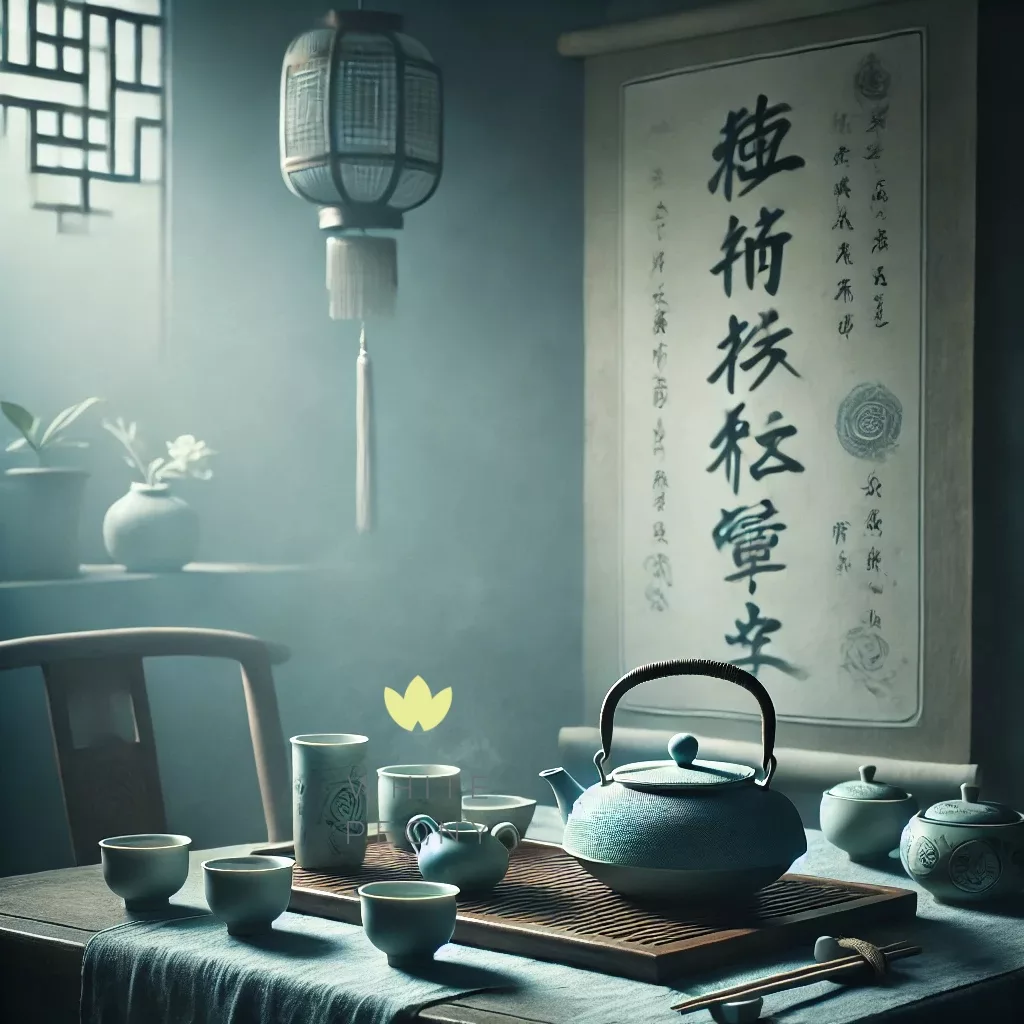
Continue your journey through tea expressions – subscribe and learn more each month.

